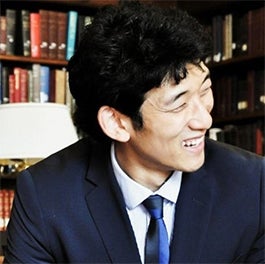 Jisung Park PhD ’17 has nothing against polar bears, but he thinks the environmental movement could use a more human focus. Park wants to reframe the debate with empirical data to measure the economic consequences of a steadily warming planet.
Jisung Park PhD ’17 has nothing against polar bears, but he thinks the environmental movement could use a more human focus. Park wants to reframe the debate with empirical data to measure the economic consequences of a steadily warming planet.
“What happens to human beings when we get temperature stressed? We get hot, we get bothered, we get irritated,” says Park.
This may be obvious, but the repercussions go beyond general testiness. “When you crunch the numbers, you can see that the majority of the damages to society from climate change may end up coming from health, labor supply and productivity, growth, local employment, and even students and learning,” says Park.
One of his studies looked at student performance in New York City schools. He found that students had a 12 percent greater chance of failing a test during a hot day than on a cooler one.
His other work has revealed the same pattern—hotter than average years lead to lower output per person—both across as well as within countries, including the United States.
“It’s not that much of a stretch to see that those who will be hit hardest by climate change will be those in the South and those who work in construction, manufacturing, and transportation,” says Park.
The power of economics to delve into societal impact is one of the reasons Park came to Harvard.
“I came here to get my PhD because Harvard’s Economics Department is at the top. At Harvard, there are so many mainstream micro-economists, environmental economists, and people working with climate change and in public health,” he says.
While at Harvard, he’s worked at the World Bank and in previous summers, for Bank of America Merrill Lynch in their energy divisions. He’s also been a speaker at the Climate Change Solutions Fund and the Global Advisory Council Meeting.
In addition to these opportunities, he’s grateful for the funding he received at GSAS. “All of us are blessed by the amount of financial support we receive,” says Park. “None of my research would have been as fluid as it has been without it.”
Receiving funding for all five years is key, he says. “The ability to do great research is hard, and it takes time. You need time to mess up and to try crazy things. That’s not always possible when you’re hard-pressed to pay the bills or need to teach all the time.”
After graduating, Park went on to the Harvard Kennedy School for a postdoctoral fellowship and then to join the faculty at UCLA, where he will continue his research on the economic costs of climate change. Says Park, “We’re all in this together.”